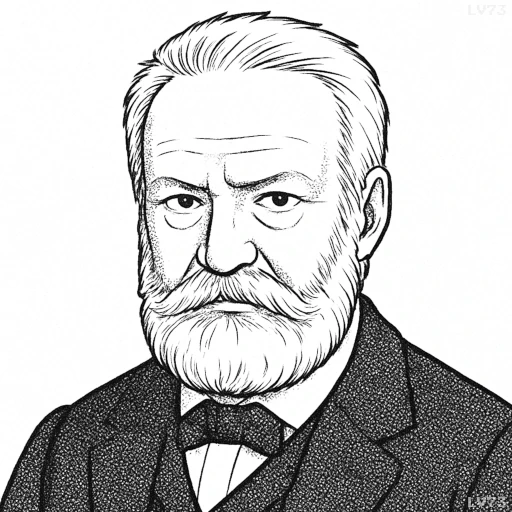“A man is not idle because he is absorbed in thought. There is a visible labor and there is an invisible labor.”

- February 26, 1802 – May 22, 1885
- Born in France
- Author, poet, playwright
table of contents
Quote
“A man is not idle because he is absorbed in thought. There is a visible labor and there is an invisible labor.”
Explanation
In this quote, Victor Hugo distinguishes between visible labor—the physical work that is seen by others—and invisible labor, which refers to the mental, emotional, and intellectual work that often goes unnoticed. Hugo suggests that a person is not necessarily idle when they are deeply absorbed in thought; their mind may be working intensely, even if it is not outwardly visible. The quote highlights the value of intellectual labor—such as problem-solving, reflection, or creative thinking—which is just as important as physical work but is often underappreciated or invisible in society.
Hugo’s words reflect his understanding of the different kinds of work that contribute to human progress and personal development. While society often values physical and visible labor, Hugo encourages us to recognize the significance of mental and emotional work. The “invisible labor” of the mind shapes ideas, philosophies, and innovations, which, though not always tangible or immediately observable, have a profound impact on the world.
In modern terms, this quote speaks to the importance of mental health, creative thinking, and intellectual contribution. It reminds us that thought and reflection are forms of work in their own right and that the quiet labor of the mind is essential for personal growth and societal advancement. It encourages us to value and honor the invisible labor that often takes place within, recognizing that both mental and physical work are equally important in shaping the future.
Would you like to share your impressions or related stories about this quote in the comments section?



